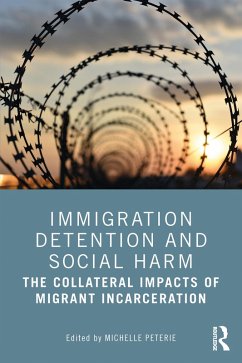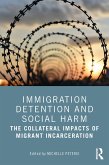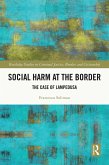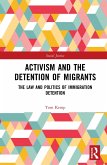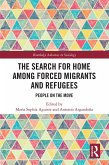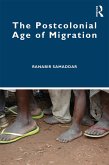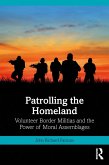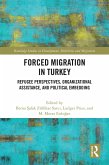This interdisciplinary edited collection is the first internationally to comprehensively explore the harms immigration detention imposes beyond the 'detainee'. Bringing together research from North America, the UK, Europe and Australia, it shows how the harms immigration detention imposes ramify beyond singular bodies, moments and locations - reverberating through families and communities and echoing across time.
The book is structured in three parts. Part One: Human Costs examines the harms immigration detention imposes on people who are not personally incarcerated, but whose lives are nonetheless entangled with detention regimes. Part Two: Societal Consequences highlights the corrosive impacts of immigration detention at the societal level, including the role migrant incarceration plays in naturalising and perpetuating inequalities and injustices. Part Three: Ending the Harm interrogates the possibilities of detention reform and detention abolition.
This book will be a key reference text for scholars and students in the social and behavioural sciences who are interested in immigration detention, human rights and/or incarceration.
Dieser Download kann aus rechtlichen Gründen nur mit Rechnungsadresse in A, B, BG, CY, CZ, D, DK, EW, E, FIN, F, GR, HR, H, IRL, I, LT, L, LR, M, NL, PL, P, R, S, SLO, SK ausgeliefert werden.
Nancy Hiemstra, Associate Professor at Stony Brook University, US
This book delivers a powerful message as it guides the reader through often overlooked dimensions of immigration detention. It demonstrates how the formulation and delivery of this practice harms not only those detained, their family and friends but society more broadly. In the introduction Michelle Peterie establishes the value of social harm as the conceptual frame of analysis. Through this lens the authors collectively destabilise moral and ethical justifications typically used to sustain the practice and expose the limits of political interest. I highly recommend this important work to scholars and students across disciplinary areas such as sociology, politics, criminology, policy making and law, as well as more general readers seeking to better understand this complex topic.
Melissa Bull, Professor Queensland University of Technology, Australia

